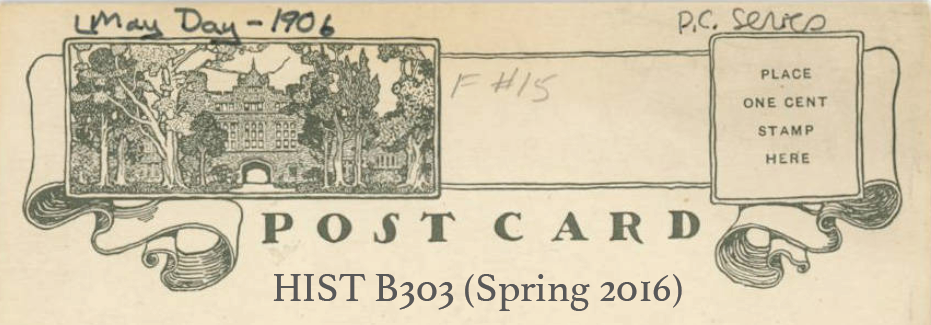I was fascinated by Rebecca Onion’s assessment of historical photos on twitter, mostly because I don’t use twitter very much and have seen almost the opposite look at historical photos on tumblr. I don’t think this has to do as much with the platform as with who is running the account. Onion writes, “Lack of attribution for the artists who took the photos these accounts use is only the beginning of the problem. By failing to provide context, offering a repetitive and restricted view of what “history” is, and never linking to the many real historical resources available on the Web, these accounts strip history of the truly fun parts: curiosity, detective work, and discovery.” Obviously the character limit of twitter limits context to some extent, but tumblrs like the Queer Archive Project and Black History Album illustrate a better take on these “snapshots” of historical moments and movements.
The Queer Archive project has an actual timeline that allows users to look for photos and images from different periods, but also has a larger area of interest than the twitter accounts, including photos of book covers, publications, flyers, and even ads. One post I loved is this collection of lesbian pulp fiction covers. It doesn’t really give context, but might inspire someone to look up more information about lesbian pulp fiction. At least, it gives a great visual of some of the only representations of lesbians from this period. Some posts give actual credit and context, like one on Bob Mizer’s Physique Pictorial magazine, with amusing erotic photos of muscular men. The post details that it was “first published in 1951, was the first of the “beefcake” or “muscle mags” aimed at homosexuals to appreciate and eroticize the male figure. The magazines also helped to create the homosexual consumer culture beginning to thrive in these decades, with ads for films, clothing, etc.” The Black History Album is just photo based, but gives great short descriptions, like this one for a photo of an African American woman’s basketball team from 1935. It even cites the academic book the photo came from. Therefore, I think we shouldn’t discount twitter photo blogs, especially since it is a very accessible way for people to find and gain interest in history, especially the histories of marginalized communities.

Have you ever been to https://www.reddit.com/r/LGBTLibrary/ ??
It’s an AMAZING resource and similar to the Queer History Archive tumblr.
I’m so old I still barely understand reddit but thank you for this, Katie! 🙂